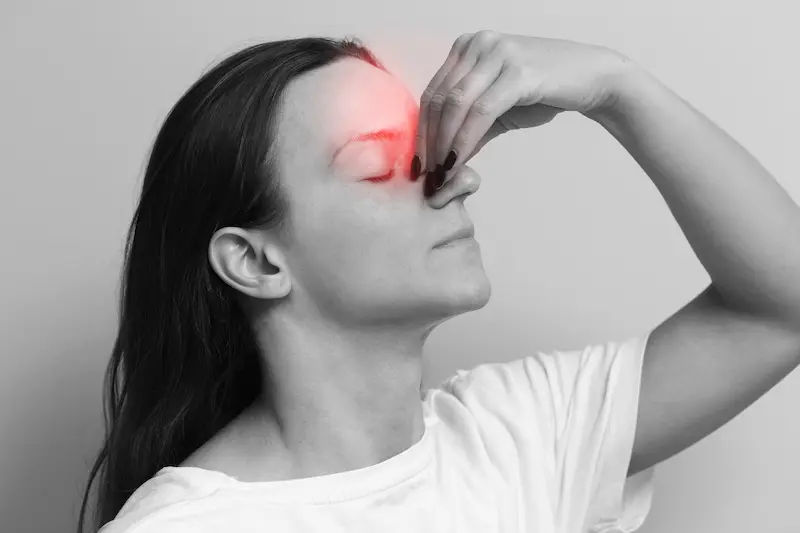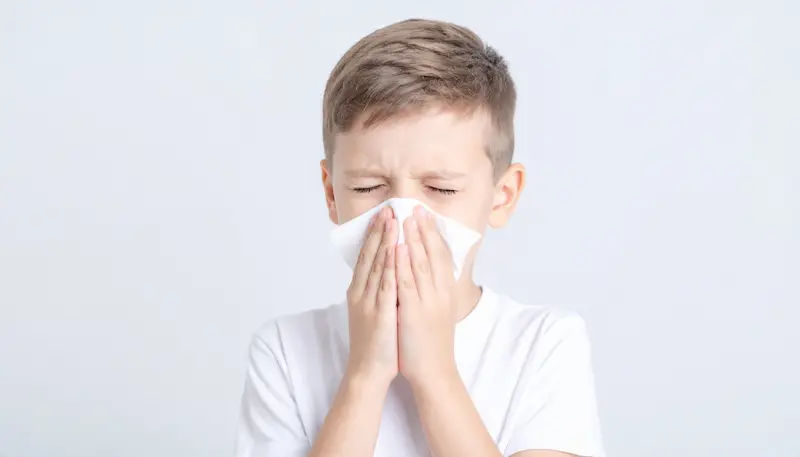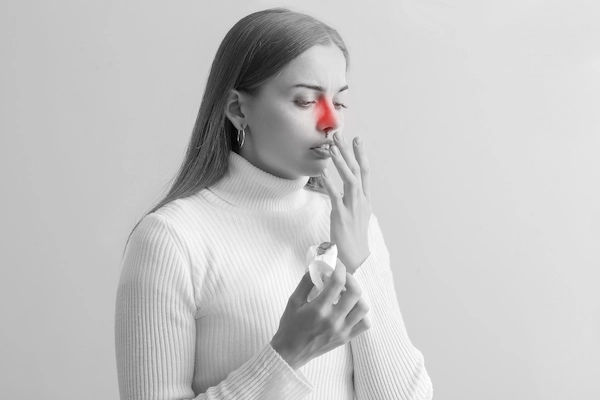Sinusitis Relief: Symptoms, Causes, and How to Feel Better
Know about the sinusitis, what it is, signs, symptoms, causes, treatment options like home remedies and prescription medications and more.

Written by Dr. Rohinipriyanka Pondugula
Reviewed by Dr. D Bhanu Prakash MBBS, AFIH, Advanced certificate in critical care medicine, Fellowship in critical care medicine
Last updated on 13th Jan, 2026

Introduction
That relentless facial pressure, the nagging headache, the congestion that just won’t quit—if you’ve ever experienced sinusitis, you know how utterly miserable it can be. Often mistaken for a stubborn cold, sinusitis is a common inflammation of the paranasal sinuses that affects millions each year. But what exactly is happening inside your head, and more importantly, how can you find genuine relief? This comprehensive guide will demystify sinusitis, helping you distinguish between a viral and bacterial infection, identify your triggers, and explore a range of solutions from simple home remedies to advanced medical treatments. We’ll empower you with the knowledge to not only tackle current symptoms but also to take proactive steps toward preventing future flare-ups and breathing easier for good.
What Is Sinusitis? More Than Just a Stuffy Nose
Your sinuses are hollow, air-filled cavities located behind your forehead, nose, cheekbones, and eyes. When healthy, they are lined with a thin layer of mucus that traps dust, germs, and other particles in the air, which are then swept away by tiny hair-like structures called cilia.
Sinusitis occurs when these tissues become inflamed and swollen, often due to an infection or allergic reaction. This inflammation blocks the narrow sinus openings, preventing mucus from draining normally. The resulting backup creates a damp, stagnant environment, the perfect breeding ground for viruses or bacteria, leading to the painful pressure and infection we associate with a sinus infection.
Consult an ENT Specialist for Personalised Advice
Recognising the Signs: Acute vs. Chronic Sinusitis Symptoms
The key to managing sinusitis effectively is understanding its timeline and pattern. Doctors classify it based on how long symptoms persist.
Acute Sinusitis Symptoms
Acute sinusitis is the most common form, often starting as a common cold that then evolves into a bacterial infection. Symptoms typically last for less than four weeks.
The hallmark signs include:
Thick, yellow or greenish nasal discharge
Nasal congestion or obstruction, leading to difficulty breathing through your nose
Pain, tenderness, and swelling around your eyes, cheeks, nose, or forehead that worsens when you bend over
Reduced sense of smell and taste
Cough, often worse at night due to post-nasal drip
Chronic Sinusitis Symptoms
When inflammation and symptoms last for 12 weeks or more despite treatment, it's classified as chronic sinusitis.
The symptoms can be more subtle but are incredibly persistent:
A feeling of congestion or fullness in your face
Nasal obstruction or blockage
Pus in the nasal cavity
Fever is less common in chronic cases
Discoloured post-nasal drainage
You may also experience nasal polyps (soft, noncancerous growths) or inflamed tissue.
When to See a Doctor Immediately?
While most cases are uncomfortable, certain symptoms warrant immediate medical attention as they may indicate a serious complication like an infection spreading to the eyes or brain:
Severe headache or facial pain that does not improve with OTC medication.
High fever that persists.
Sudden vision changes or double vision.
Swelling or redness around the eyes.
Confusion or a stiff neck.
Shortness of breath.
What’s Causing Your Sinus Trouble? The Usual Suspects
Sinusitis rarely has a single cause; it's usually a perfect storm of several factors.
The Primary Culprit: Viral Infections
The vast majority of acute sinusitis cases (over 90%) are caused by the same viruses responsible for the common cold. This is a critical point, as it means antibiotics are ineffective for these cases. The viral infection triggers inflammation that blocks the sinuses.
Secondary Invaders: Bacterial Infections
When a viral cold prevents normal mucus drainage, bacteria can seize the opportunity to grow in the stagnant mucus. This is a secondary bacterial infection. Signs that may point to a bacterial cause include symptoms lasting more than 10 days without improvement, symptoms that worsen after initial improvement ("double worsening"), or a high fever and thick, colored mucus for several days in a row.
Persistent Problems: Allergies and Environmental Irritants
Chronic inflammation from allergies (like hay fever) is a leading driver of chronic sinusitis. Inhaled allergens cause ongoing swelling of the nasal and sinus tissues. Similarly, exposure to pollutants, cigarette smoke, and chemical irritants can trigger and perpetuate inflammation.
Structural and Biological Factors
Some people are simply anatomically predisposed to sinusitis. A deviated septum (where the wall between your nostrils is crooked), narrow sinus openings, or nasal polyps can create physical blockages. Other conditions like cystic fibrosis, gastroesophageal reflux disease (GERD), and immune system disorders can also play a significant role.
Finding Relief: Effective Sinusitis Treatment Options
Treatment is tailored to the cause, severity, and duration of your symptoms.
At-Home Remedies and Supportive Care
These are the first line of defense, especially for viral cases, and are highly effective for how to drain sinuses and relieving pressure.
Nasal Irrigation: Using a neti pot or saline squeeze bottle to flush out thickened mucus and allergens is one of the most effective methods. (Use distilled, sterile, or previously boiled water only).
Hydration: Drinking plenty of water and herbal tea helps thin mucus.
Steam Inhalation: Taking a hot shower or leaning over a bowl of hot water with a towel over your head can moisten nasal passages and loosen secretions.
Warm Compresses: Applying a warm cloth to your face can soothe pain and ease pressure.
Over-the-Counter (OTC) Medications
Decongestants (e.g., pseudoephedrine): Can reduce swelling and provide short-term relief, but should not be used for more than a few days to avoid rebound congestion.
Pain Relievers: Aspirin, ibuprofen, or acetaminophen can help alleviate sinus headache and facial pain.
Saline Sprays: Provide safe, non-medicated moisture to dry nasal passages.
Prescription Medications
It includes
Corticosteroid Nasal Sprays: (e.g., fluticasone, mometasone) are the cornerstone of treating chronic sinusitis and severe allergies, as they reduce inflammation.
Antibiotics are only prescribed if a bacterial infection is strongly suspected or confirmed, following a strict duration to avoid antibiotic resistance.
Immunotherapy: For allergy-related sinusitis, allergy shots or drops can help desensitise your immune system to specific triggers.
Surgical Options for Chronic Cases
When medication fails, endoscopic sinus surgery may be recommended. An ENT surgeon uses a thin, flexible tube with a light to remove polyps, scrape away inflamed tissue, or enlarge narrow sinus openings to restore drainage. It's not a first resort, but it can be life-changing for those with structural issues.
Conclusion: Navigating Your Path to Sinus Health
Living with sinusitis can feel like a constant battle against pressure and congestion, but it's a battle you can win. By understanding the root causes of your symptoms, whether it's a fleeting virus, a persistent allergen, or an anatomical factor, you can make informed decisions about your care. Start with the gentle, proven methods of steam, saline, and hydration. Most importantly, listen to your body and seek professional guidance when symptoms are severe or stubborn.
Consult an ENT Specialist for Personalised Advice
Consult an ENT Specialist for Personalised Advice

Dr. Sreeram Valluri
Ent Specialist
15 Years • MBBS, MS ENT, HEAD & NECK SURGERY
Hyderabad
Apollo Hospitals Jubilee Hills, Hyderabad

Dr. Sreeram Valluri
Ent Specialist
15 Years • MBBS, MS ENT
Manikonda Jagir
Apollo Clinic, Manikonda, Manikonda Jagir

Dr. Sourav Banerjee
Ent Specialist
5 Years • MBBS, MS (Otorihnolaryngology)
New Delhi
THE DOCTORS NESST, New Delhi
Dr. Suresh Tarikere Laxman
Ent Specialist
26 Years • M.B.B.S , M.S, DIPLOMA IN THYROID & DIABETES
Bengaluru
Surya Ent Clinic, Bengaluru

Dr. M Venkata Apparao
Ent Specialist
25 Years • MBBS MS
Visakhapatnam
Apparao ENT CLINIC, Visakhapatnam




